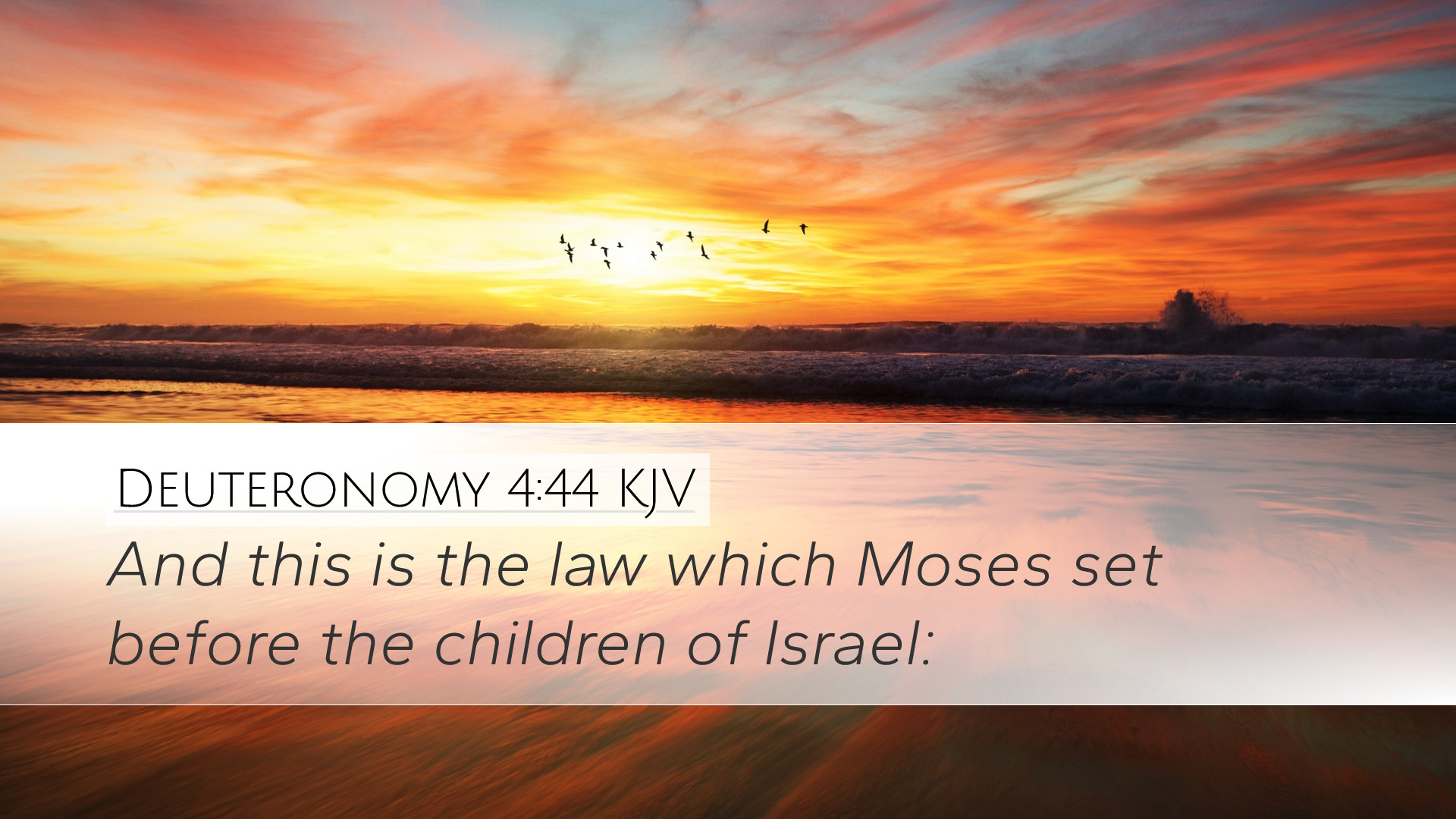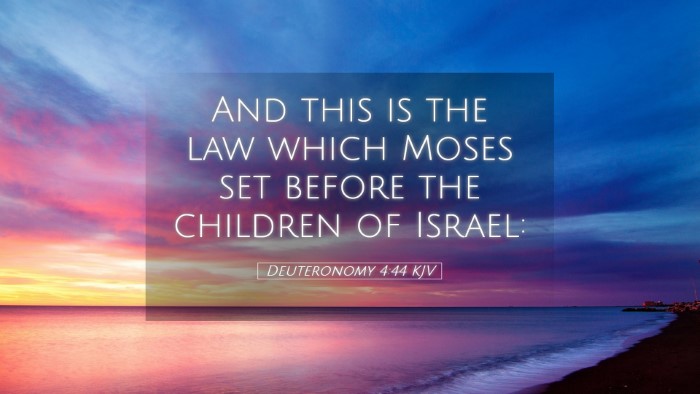Commentary on Deuteronomy 4:44
Verse Text: "And this is the law which Moses set before the children of Israel." (Deuteronomy 4:44)
Introduction
The passage in Deuteronomy 4:44 serves as a pivotal introduction to the reiteration of the Law by Moses to the children of Israel. This moment is symbolic of a transition where Moses, having received the commandments from God, is now imparting these divine statutes to God's chosen people. It encapsulates a period of reflection, instruction, and preparation as Israel stands on the brink of entering the Promised Land.
Historical Context
The Book of Deuteronomy is a crucial document in the Pentateuch, often regarded as Moses’ farewell address to the Israelites before they enter Canaan. This particular verse emphasizes the significance of the law (The Torah) that governs the lives of the people. Understanding the historical context of the Israelites—freed from the bondage of Egypt, wandering in the wilderness, and poised to inherit their promised homeland—enhances the gravity of this declaration.
Commentary Insights
Matthew Henry
Matthew Henry highlights the importance of the law as a guide for the Israelites. He notes that the law served not merely as a set of rules but as a means of covenant identity—demarcating the people of Israel as distinct among nations. Moses presents the law as an essential framework within which they must thrive as a people chosen by God. Henry stresses that it provides direction for moral and ethical conduct, fostering a society that reflects God's holiness.
Albert Barnes
Albert Barnes offers a clarification of the term "law" within this verse. He suggests that it refers to the entire body of divine instructions encompassing legal, ceremonial, and moral statutes. The emphasis on Moses setting it before the children of Israel reflects an authoritative delivery, indicating that the law is to be respected and upheld. Barnes argues that the position of this declaration serves to highlight a crucial moment of accountability, urging the Israelites to observe and adhere to it diligently.
Adam Clarke
Adam Clarke delves into the implications of Moses' authority as he presents the law. Clarke elucidates that Moses acts as God's intermediary and his role as a prophet underscores the seriousness of the deliverance. He conveys that this declaration is not just instruction; it is an invitation to restore their covenantal relationship with God. Moreover, Clarke emphasizes the functional aspect of the law as a means for Israel to engage with God’s promises as they prepare to enter a land flowing with milk and honey.
Theological Significance
The theological implications of Deuteronomy 4:44 encompass themes of covenant, revelation, and obedience. The reiteration of the law is a reminder of the covenant established between God and Israel, affirming that the people are called to live in accordance with divine statutes. This call to obedience reflects the nature of faith that necessitates active participation in God's redemptive plan.
Practical Application
For modern readers, particularly pastors, students, and scholars, this passage invites reflection on the nature of God’s law in our lives today. It challenges believers to consider how they engage with biblical commandments and the moral imperatives that arise from them. It also serves as a reminder that the law, understood through the lens of Christ, guides the believer towards a transformative relationship with God.
Conclusion
Deuteronomy 4:44 is not simply a historical recitation but a profound invitation to understand and embrace the Law of God. Through the insights of revered commentators, we witness the depth of meaning embedded in the text. It necessitates a call to a faithful living that aligns with divine principles and serves as a foundation for a covenant community.


